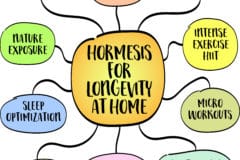Written by: John Munley
Build Good Credit, Early.
This is the third part of our three-part series on The Path To Awesome: Top Three Financial Habits to Help You on Your Way. I detailed in the first blog, that I was inspired to write these by a very personal response to Kid President’s exhortation that everyone find their own path to awesome. As a father and former young person myself, I see this as a chance to more widely share some of the conversations I’ve had with my own daughters about developing good financial habits to help us all get to our own, very special brand of awesome.
However, just because this wraps up our Path To Awesome discussion, the conversations about developing good financial habits won’t end, and they shouldn’t.
Throughout this conversation, I’ve (strongly) suggested that we who make the choice to take control of our life and meet our life goals need an awareness of who we are, the courage to follow our convictions and a base of knowledge that enables us to carry out our plans. These are assets we can acquire and must practice as we employ the Top 3 Financial Habits we’ll need to get to awesome: paying ourselves first; employing the magic of compounding; and using debt to our advantage — the topic of this final part of our discussion.
In fact, if you take nothing else from this article, please remember this: your credit score is a valuable asset. The good news is, you can control it. You can improve it and (the other not so good news is) you can ruin it. Pay attention to your credit report and use good debt to build up your credit rating.
Place Your Debts: Good Debt v.s. Bad Debt
You may be of the opinion that debt is always bad — albeit a necessary evil — but that’s not entirely true. There are some good reasons to open up a line of credit, ie: assume debt, and some smart uses for that line of credit.
Really? Debt can be a good thing?
Yes, really — but only if it’s part of your thoughtful, purposeful, goals-oriented plan.
You may have read a few articles about how high-flying financial wizards leverage debt to build empires, but you don’t have to be a Wall Street whiz kid to realize some advantages associated with ‘good debt’.
But what exactly IS good debt vs. bad debt? In a nutshell:
- Good Debt is any debt that allows you to increase your wealth. It can be looked at as an investment, just like a bond or stock.
- Examples
- Mortgage – allows you to purchase your home, build net worth, receive tax benefits,
- Home Equity Loan or Line of Credit – allows you to draw upon the built up equity in your home to use for home improvement, emergency situation, or other need,
- Student Loans – provides you with better education, which should result in higher income potential or life achievement.
- Examples
While….
- Bad Debt is debt on consumables with no long term value.
- Examples
- Credit Card Debt – debt to supply short term living/spending needs – be careful!! Don’t hold revolving debt! Interest rates are also exorbitantly high.
- Auto Loan – cars depreciate (ie: lose their value) very quickly. An auto loan is debt on a depreciating asset, as opposed to a mortgage which is debt on an APPRECIATING asset. However, occasionally automakers offer low interest rate incentive deals. To qualify for these low rates, borrowers need a high credit score (another good reason to build up that credit score).
- Examples
For those of us just starting out in our careers, or even those of us who are gifting ourselves with a complete overhaul of how we manage our financial assets, this is a good, basic snapshot of the difference between good and bad debt.
Building Your Trustworthiness through Smart Debt
So, to buy that car, rent that apartment or buy that house — unless you’re paying cash — you want to get approved for a line of credit and get the best interest rate and most favorable payment terms, right? If lenders see you as trustworthy, you will!
If you can, it’s a good idea to start establishing credit as early as the college-age years. A number of organizations and businesses use credit checks to approve applications, including landlords for your apartment, banks for your loans, even potential employers.
Conversely,
- If you have no credit history, you are considered a risk and the lender may either not lend to you or lend to you at a higher interest rate than normal,
- If you have bad credit, lenders will definitely not lend to you and if by some chance they do, your interest rate will be astronomical, and
- If you go to buy your first home (or a new home) and have low credit score, it might be hard to get a “pre-approval” from a bank. Usually, sellers want to see some kind of pre-approval to show you have the creditworthiness to even have your purchase offer considered.
So we see that we should all include building a trustworthy credit history as part of our life plan. Besides bank loans for things like cars and homes (and businesses, too), the other common type of debt people assume is:
Credit Card Debt
So what about credit card debt? Is it always ‘bad debt’?
The answer is the same as with other types of debt — it depends.
Is your use of a credit card part of a thoughtful, deliberate financial plan based on your life goals?
Or not?
It’s very easy to just swipe your card and get your “stuff” without feeling the full impact of what it costs you. Too often, this leads people to live outside of their means, which almost always results in a self-defeating cycle of continuing to run up credit card debt.
There are two principal problems with credit card debt. Both of these problems come as the result of carrying a revolving balance (ie: you aren’t paying off the full amount you owe each and every month).
First, if you don’t make your payment on time, the lender charges you interest. If you carry a large credit card balance, you may be spending money you should be allocating to your savings into paying off that revolving (read: expensive and counterproductive) debt. How bad a move is this? Remember the magic of compounding? Yeah, it’s a bad move.
By carrying a revolving credit card debt, you are essentially robbing yourself of your own money to pay interest on the loan you took out to purchase items that you probably couldn’t afford according to your spending plan.
The second major problem with carrying large, revolving credit card debt balances is that you are going to pay a TON of interest on whatever you’ve purchased, driving up the cost for everything you buy on that credit card. For example, right now, credit cards are charging anywhere between 16% and 39% in interest. So that cute pair of shoes or that monogrammed newest-awesome-fiber-filled hiking jacket you bought for 50% off is going to cost you much more than you paid for it by the time you include the credit card interest payments on those items.
The lesson or good habit to learn and practice here is — pay off your credit cards monthly. And if you find that you can’t, then you are spending more than you earn.
All Credit Cards are NOT Created Equal
I don’t want to leave you with the impression that all credit card debt is bad. Credit cards are a great opportunity to build good credit habits that prove your trustworthiness to lenders, thereby increasing your options to acquire good debt for important life goals. Just as with every opportunity, however, it pays to do some research and make smart choices about which credit cards are going to serve your purposes.
The fact is, these days there is a lot of competition among lenders to attract borrowers, and so the perks of credit cards are pretty high..Many credit cards offer rewards or cash back incentives to entice people to spend using their cards. However, if you are applying for your first credit card, there are more important “perks” that you should be looking for such as no annual fee, low interest rates on balances, cash back for good grades, no late fee on first late payment, and no foreign transaction fees (Spending a semester abroad?).
Bottom line, do your research. You can shop smart for the kind and terms of debt you assume–just like the big wheels on Wall Street!
And don’t forget, every time you practice good financial habits like using good debt to build a high credit score, you are taking one more giant step along your path to awesome!






